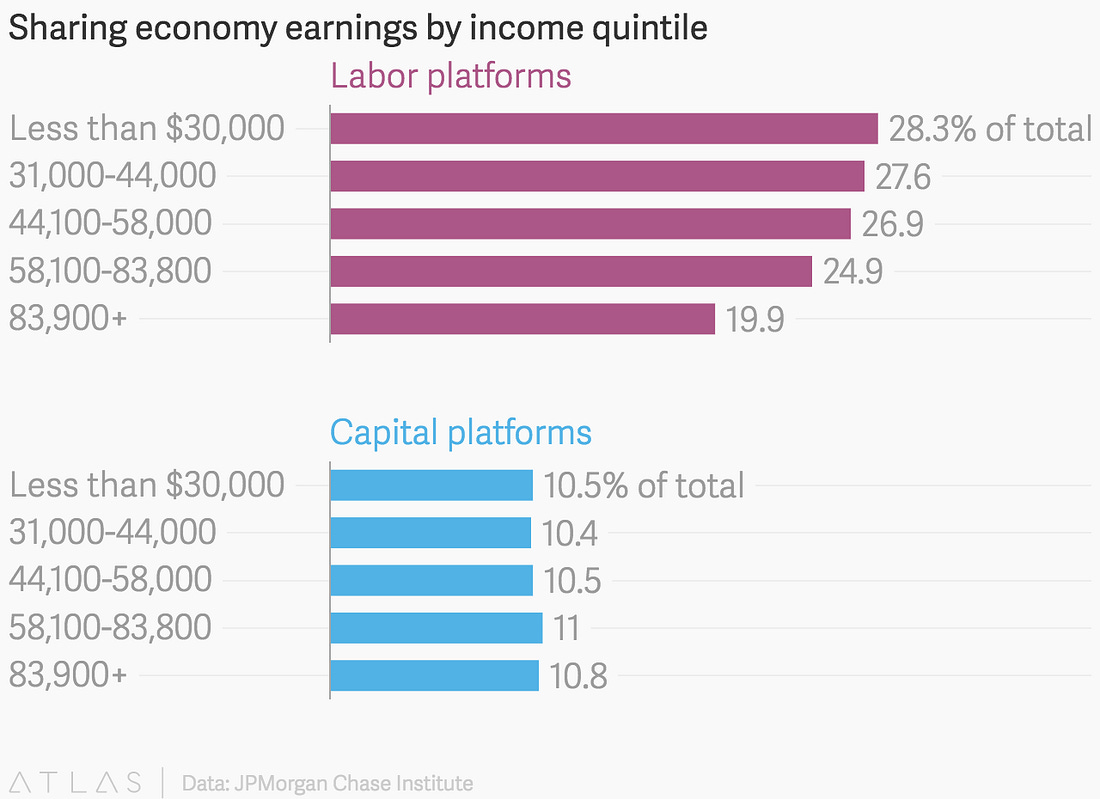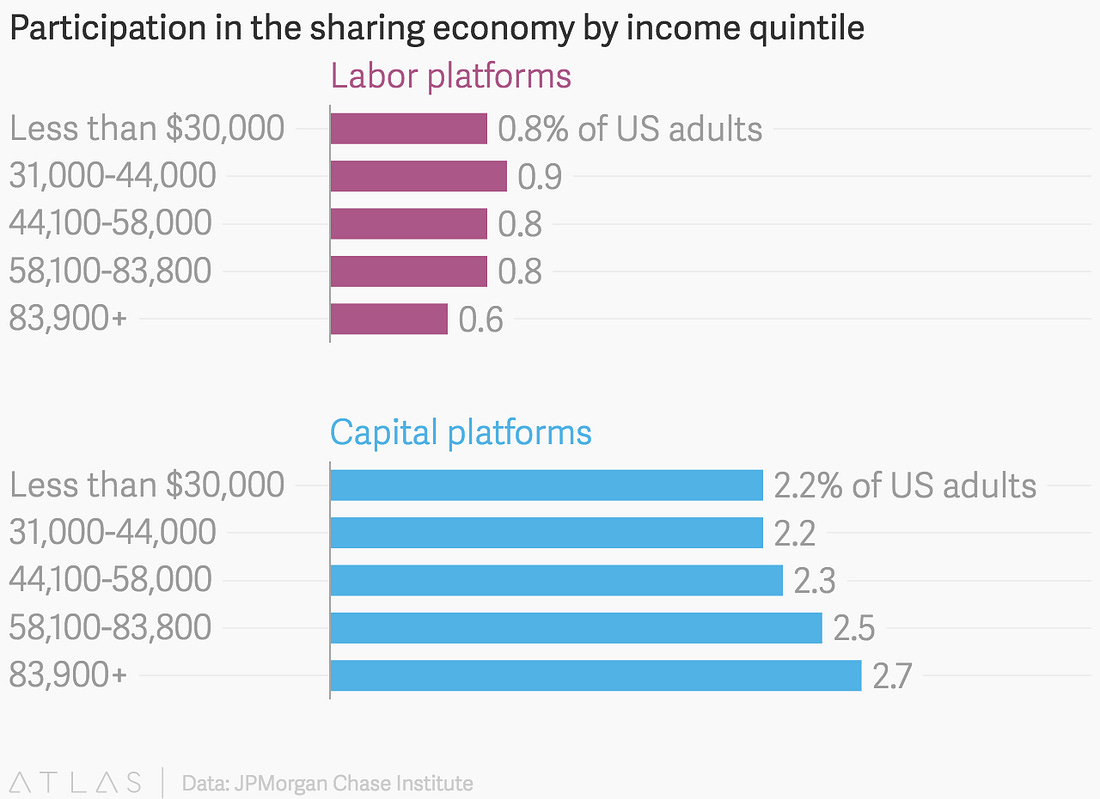Fun story: I tried to move Oversharing to Tuesdays, but then yesterday was mysteriously flagged by TinyLetter’s abuse prevention system. Nearly 24 hours and multiple emails to support later, they have examined the issue, and determined that, “upon review … we can see that the letter is fine.” (Editor’s note from the future: RIP, TinyLetter.) Barring future run-ins with the abuse prevention system, Oversharing will still be moving to Tuesdays.
In other news, I am back in New York after journeying to DC, specifically, Crystal City, Virginia, to tour the WeLive, the co-living extension of WeWork. There were arcade games and psychedelic color palettes and copious quantities of fruit water. It was the fanciest dorm I have ever seen, though I was told repeatedly that the WeLive is Not A Dorm.
Sparks fly.
Here is a story from Bloomberg’s Eric Newcomer about gas delivery startups, aka “a disruption to a fuel industry.” These companies include Filld, WeFuel, Yoshi, Purple, and Booster Fuels. They are all “trying to make gas stations obsolete” by bringing fuel straight to their customers’ cars and, really, what could go wrong?
On a recent Monday morning, about 40 miles south of San Francisco, [Filld CEO Chris] Aubuchon carefully drove a Ford F-250 pickup truck with 324 gallons of gasoline into a hospital parking garage in Palo Alto, Calif. The truck—also loaded with a gas pump, two fire extinguishers, a bucket of chalk to absorb spills, two orange traffic cones and a receipt printer—nearly grazed the ceiling of the garage as its radio antenna whipped around.
Local officials are concerned. “It is not permitted,” says Lt. Jonathan Baxter, of the San Francisco fire department. “You could imagine what could happen if a fueling truck went into a parking garage under a commercial or residential building.” Says Aubuchon, “You can never ask for permission because no one will give it.”
Tipping point.
When Uber struck a deal two weeks ago to settle the big employment misclassification lawsuit against it for $100 million, it also agreed to clarify its policies on tipping—namely, that they are not included, but drivers can request them. The problem is that Uber’s app, unlike Lyft’s, does not include a tipping function, which means riders will have to use cash. Shannon Liss-Riordan, the lawyer who represented drivers in the case, says she is hopeful that if enough drivers ask for tips, customers will get involved too and demand that Uber build in tipping. “Since Uber claims to be merely creating a platform to connect two groups of people,” she says, there’s no reason why the company shouldn’t.
Uber, meanwhile, plans to do no such thing. Uber says tips are a hassle. It says they are discriminatory. It says that, to be competitive, Uber needs to offer drivers “more stable, reliable opportunities to earn money than the alternatives,” which it implies tipping would not. “As we’ve said for many years, being Uber means you don’t need to tip,” Uber NYC general manager Josh Mohrer wrote to users last week. “Of course, if you want to tip your driver—we estimate riders offer tips on only a very small number of trips—you’re free to do so, and drivers are free to accept.” (Read: You can start tipping, I guess, but you’d be kind of weird.)
Anyway, a few points here: First, Uber is right about tipping: It’s bad for everyone, and there’s no reason to encourage it. Second, the rest of the company’s arguments are ridiculous. There are plenty of things Uber could do if it really wanted to offer more “stable, reliable” earnings: decrease its portion of the fare, make fewer sweeping rate cuts, or just increase prices period. Yes tips are bad, but here they’re also a red herring.
Capital vs. labor.
US adults who are poor and working for “labor” platforms like Uber also depend more on those earnings, per new data from the JPMorgan Chase Institute. That’s in contrast to people who rent out stuff on “capital” platforms like Airbnb, and rely on it for a similar share of earnings regardless of income.
Within lower income brackets, there’s also a slightly greater fraction of people working on labor platforms (which, based on other research about the gig economy, most likely means working for Uber). That’s again in contrast to capital platforms, where participation increases alongside higher earnings, all of which makes sense—wealthier people who already have assets like houses and cars are better positioned to rent out those assets for some extra money via the sharing economy.
“Uncanny Valley.”
The paywall recently came down on Anna Wiener’s essay about working in Silicon Valley, and if you haven’t read it already, it is smart, revealing, and full of beautiful passages like this:
I attend a networking event at an office whose walls are hung with inspirational posters that quote tech luminaries I’ve never heard of. The posters say things like “Life is short: build stuff that matters” and “Innovate or die.” I am dead.
In other words, 100% worth your time.
Other stuff.
Yelp raises wages. TaskRabbit to be profitable this year. Leaked Postmates documents are awfully good for Postmates. Uber turns five in New York, celebrates with free pizza. Uber won NYC. Uber won London. Uber may be forced to share secrets in settlement. Travis talks China. Amazon expands food delivery. Pizza delivery IPO does not go well in Spain. Food startup shuts down. People are still investing in food startups. “Any company, from the beginning, I hope, should always consider its economics.”
Thanks again for subscribing to Oversharing! If you, in the spirit of the sharing economy, would like to share this newsletter with a friend, you can direct them to sign up here. Header art by Maddie Schuette, who is available for hire. Send tips, comments, and fruit water recipes to oversharingstuff@gmail.com.






